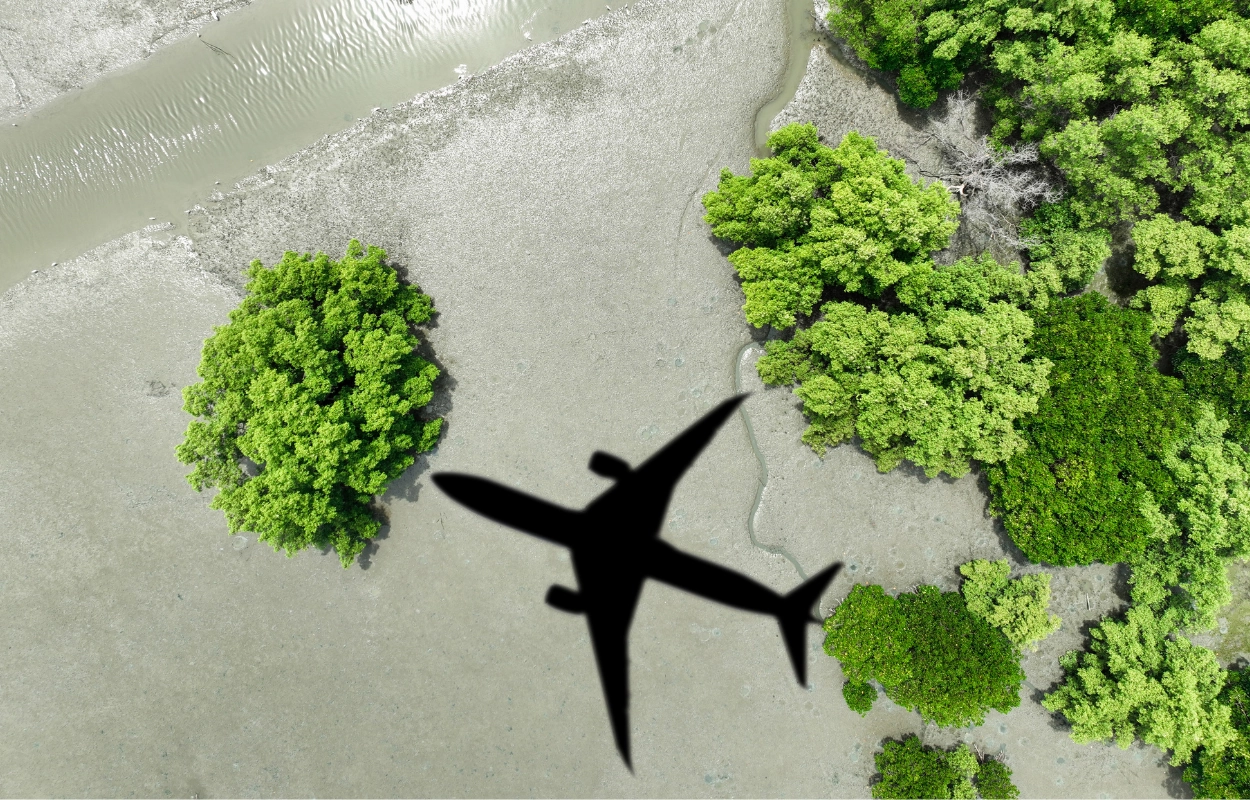When we think about sustainability in aviation, many will think about alternative fuels, less noisy engines, and targeting emission reductions. But what if the industry’s goal of attaining net-zero carbon emissions by 2050 also depended on who airlines hire, how they are trained, as well as the policies that affect their day-to-day decision?
Behind every aircraft in the sky is a group of people whose conscious or unconscious choices have an impact on the outcomes of sustainability. Aviation HR is almost never part of the climate conversation, but plays a huge part in it.
As a specialised, trusted aviation HR partner, Aeroates brings sustainability fundamentals into workforce planning. By building more systems, it becomes second nature for every employee’s decisions.
The Rising Importance of Sustainable HR Practices
With climate deadlines so close, aviation companies need to incorporate sustainable technologies that must be in line with reaching these goals. HR is having a massive impact on this due to their tasks of hiring, training, culture, and compliance. There is a wide range of sustainable HR practices, such as:
- Hiring people with values and a knowledge of the environment
Educating employees about environmentally responsible operational procedures - Promoting remote employment and more environmentally friendly transportation
- Making use of digital technologies to lessen carbon emissions and paper waste
- Encouraging work environments that place an emphasis on environmental responsibility
When these sustainable HR practices are implemented effectively, they do more than just check a box, they shape the behaviour of the employee, boost engagement, and directly contribute to the overall goal of sustainable aviation.
Aeroates’ Sustainability Initiatives in Aviation HR
Aeroates knows the importance of including its employees in the aviation industry’s transition to sustainability. Our specialised HR solutions are designed with environmental responsibility in mind for airlines, maintenance, and ground handling operators. Here are some of the key areas where Aeroates is leading the way:
1. Eco-Aligned Recruitment
At every stage of the employment process, we take sustainability into consideration. We assist aviation companies in creating a workforce that reflects their green values. Applicants who understand and have knowledge of environmental issues, or even have experience with sustainable aviation practices, would fit perfectly with the company’s culture.
2. Digital-First HR Management
We are dedicated to cutting down on the carbon impact of traditional aviation HR operations. We streamline administrative procedures and cut waste using digital contracts, cloud-based workforce administration, and paperless payroll. In addition to being better for the environment, this digital-first strategy saves time and increases transparency for both clients and staff.
3. Flexible Staffing for Green Projects
Airlines are investing in rapid green changes, including increasing the use of SAF and electrifying ground support, in response to the drive for net-zero operations by 2050. With flexible staffing models, Aeroates supports these activities by facilitating the prompt deployment of specialist personnel where they are most required.

Real-World Examples of Sustainable Employment Practices
Sustainability in aviation isn’t just theory; it’s already something that is taking shape in HR operations around the world. Here are some inspirations where we draw inspiration from to continue and contribute to the industry’s sustainable goals:
Remote-First Aviation Roles
Some European airlines have reported up to a 40% reduction in business travel since shifting administrative and support roles to remote or hybrid models. This change not only cuts operational costs but also contributes significantly to emission reductions.
A 2023 study from Cornell University and Microsoft found that full-time remote work reduces an individual’s work-related carbon footprint by up to 54%, while hybrid models yield a 29% reduction on average.
Green Onboarding
A leading MRO provider in the Middle East recently launched a sustainability module as part of its onboarding process for new hires. This includes training on proper waste separation, energy-efficient equipment use, and promoting low-impact commuting, such as carpooling and e-bike incentives.
According to Aviation Week Network, similar initiatives at MRO companies like AAR have yielded tangible results, such as improved recycling rates, reduced facility energy consumption, and higher employee engagement in environmental programs.
The Bigger Picture: HR’s Role in Aviation’s Green Future
The aviation sector’s climate targets, like the IATA goal of net-zero emissions by 2050, can’t be reached with technology alone. There must be a behavioural change, cultural transformation, and employee engagement. That’s where HR becomes a powerful job.
With our help, companies are realising that sustainable hiring builds values-aligned teams who are naturally more engaged in environmental goals. Additionally, digital HR systems reduce paper use and energy consumption, streamlining operations with a lower carbon footprint.
Sustainability in aviation must extend beyond aircraft and into every aspect of operations, including the people powering the system.
Sustainability in Aviation Starts with People
As the push for greener skies grows stronger, the aspect of employees cannot be left behind. HR today goes far beyond payroll and compliance; it plays a vital role in shaping culture, guiding operations, and driving sustainability efforts.
We are leading this shift by showing what sustainable aviation HR looks like in aviation. From hiring to workforce planning, we bring eco-conscious thinking into every aspect of our service, helping aviation businesses meet their environmental goals without losing sight of performance or growth.
For any airline, airport, or aviation service provider that is serious about sustainability, HR isn’t a side note; it’s a key part of the strategy. And Aeroates is the partner to make it happen.
